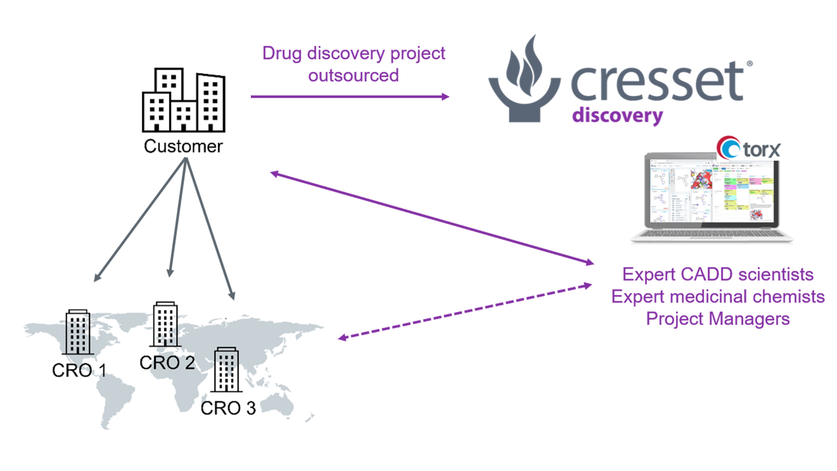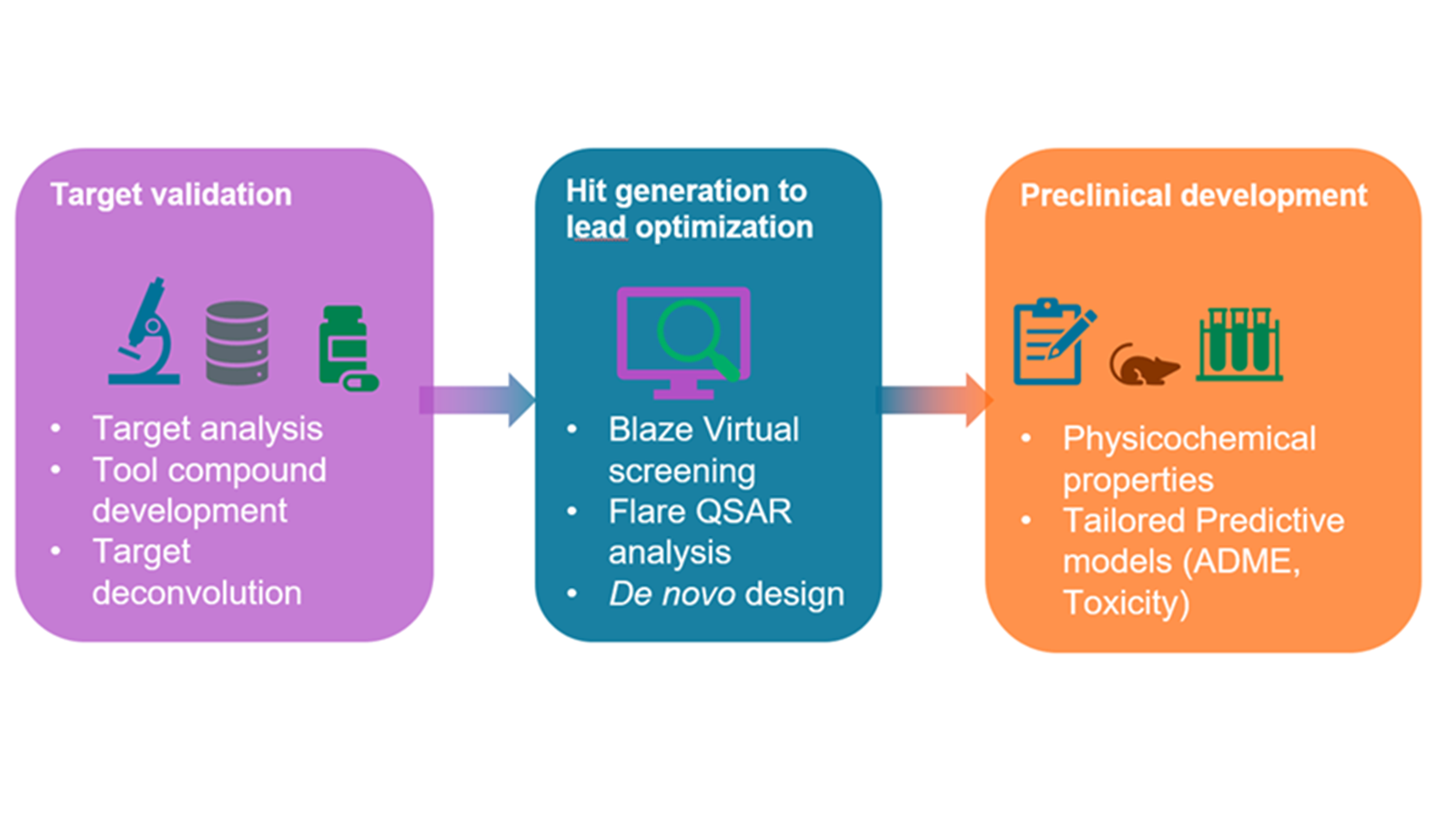Modern drug discovery needs to be fast. Not long ago, pharmaceutical organizations prioritized cost efficiency above all else, with an emphasis on bringing high-value compounds to market with minimal time and material waste. However, recent years have seen a paradigm shift, where minimizing time-to-market is now prioritized above all else. The reason for this change is in-part driven by advances in computational modelling approaches that allow companies to escape intellectual property barriers from their competitors, making the drug market more competitive than ever before. In modern drug design projects, it is therefore vital to bring compounds to market as quickly as possible, to gain an edge on equally fast-moving competitors. How does this change in operational priorities affect the role of the modern medicinal chemist working in drug discovery?
Drug discovery and the medicinal chemist: a brief history
Medicinal chemists have long been the primary force behind lab-based drug discovery due to a wide-ranging expertise which encompasses modern organic chemistry, disease biology, and both in vitro and in vivo pharmacological screening techniques. In lab-based drug design, the medicinal chemist remains supreme, however their role in early-stage drug discovery is evolving, due to interest in in silico drug design techniques in recent decades. These computational techniques promise huge gains on speed and cost effectiveness when compared to traditional lab-based screening, meaning they have been widely adopted. With the evolution of computational chemists and sophisticated in silico chemistry, medicinal chemists have had to expand their skillset to involve a multitude of in silico modeling techniques, particularly those that are commonly employed in drug discovery, such as pharmacophore elucidation, quantitative structure-activity relationship (QSAR), and virtual screening.
Medicinal or computational chemist: what’s the difference?
On the surface, it may seem that a medicinal chemist doing in silico early-stage drug design is, by definition, a computational chemist. With the enormous successes of computational chemistry and purely in silico drug design, what is the need for the medicinal chemist in modern early-stage drug design?
Medicinal chemists may be thought of as a hybrid between various life scientists. Knowledge of biology, chemistry and pharmacology is a rare combination, meaning that medicinal chemists often have a specific domain knowledge compared to other types of scientist, throughout the drug discovery process. In addition, medicinal chemists often have knowledge of synthetic procedures, as well as in-depth insights into the likely performance of a compound as it progresses towards the market. Computational chemists, by contrast are generally much more niche when involved in the drug discovery workflow. Often with backgrounds in physical and computational sciences, computational chemists are more concerned with the ‘how’, while the medicinal chemists are often more interested in the ‘why’. Indeed, though there is overlap between medicinal and computational chemists, the latter can never ‘replace’ medicinal chemists, due to a distinct difference in their expertise. A computational chemist is not limited to drug discovery, or even small molecule chemistry. In fact, only a small proportion of computational chemists work on drug discovery solutions. On the other hand, all medicinal chemists work on drug discovery solutions, while only a small proportion of them have a strong understanding of the computational physics involved in in silico techniques. Though computational and medicinal chemists occupy subtly different niches, they can be hugely complementary and extremely effective when working on outsourced drug design projects together.
Outsourced in silico drug design
Outsourcing is extremely common in modern drug design projects. The emphasis on bringing drugs to market as quickly as possible despite the excess costs, has led to the formation of highly specialized contract research organizations (CROs). CROs usually focus on a particular area of the drug development process, such as synthesis of a particular class of compound, or use of a specialized analytical technique. CROs specializing in computational modeling, such as Cresset Discovery, are also emerging. This type of CRO allows for rapid access to expertise and cutting-edge technologies that are not available in-house. In this environment, computational and medicinal chemists can work together, combining domain drug discovery knowledge and operational experience with technical and computational skill. This is a potent combination in modeling drug discovery problems.
Cresset Discovery is a CRO specializing in computer-aided drug design (CADD). We employ state of the art physics and computational methods and pride ourselves on effective communication with our customers. Medicinal chemists play an essential role in modeling at Cresset Discovery as they provide an effective bridge between the client and the technical aspects of the modeling. Their computational experience combined with lab-based background improves customer experience enabling us to serve as an effective partner during the early stages of drug design, maximizing our client’s return on investment. Figure 1 shows how Cresset Discovery can aid a computational drug design project involving multiple organizations.

Figure 1. Possible interaction routes between Cresset Discovery, our customer, and other stakeholders in a drug discovery project.
Accelerate creation of your commercial assets
When a customer chooses to collaborate with Cresset Discovery, they get flexible access to a team of experienced molecular modelers, including medicinal chemists and computational chemists working in synergy. The work we undertake will help advance your project, make a significant impact on your drug designs, and deliver efficiencies to ensure you only make molecules that matter. Figure 2 captures areas in the early stages of drug discovery where Cresset Discovery can add value to your project.
![]()
 Figure 2. Early stages of the drug discovery process where Cresset Discovery excels.
Figure 2. Early stages of the drug discovery process where Cresset Discovery excels.
Contact us to request a free confidential discussion.

 Figure 2. Early stages of the drug discovery process where
Figure 2. Early stages of the drug discovery process where